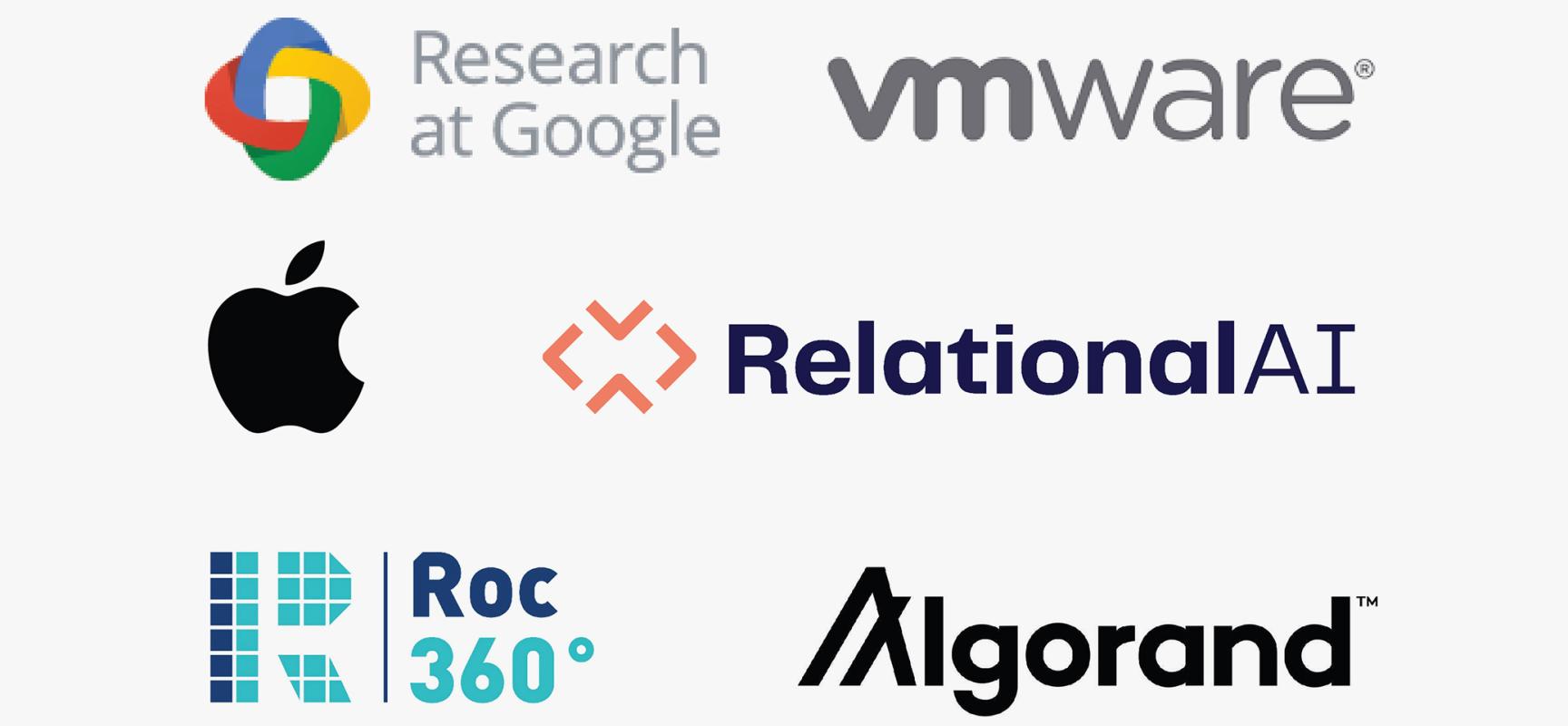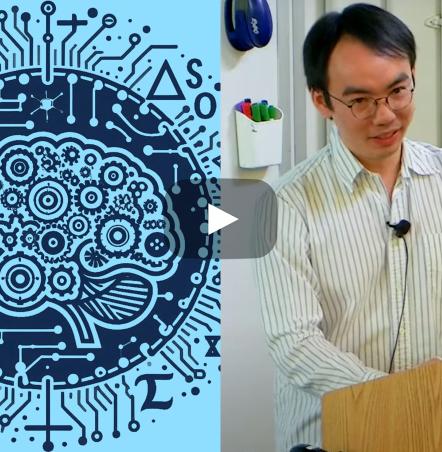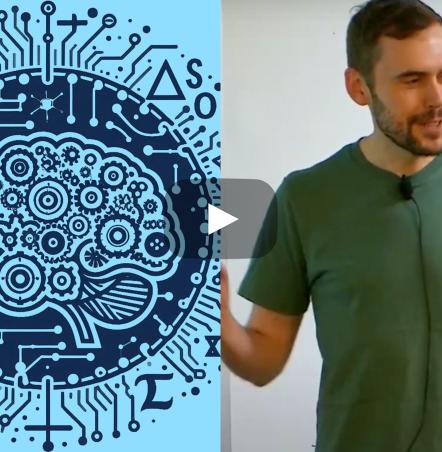Industry Day 2023

The Simons Institute’s ninth Industry Day was our largest to date, with over 150 attendees from the Institute, the broader UC Berkeley campus, our partner and sponsor companies, and beyond. The event, which took place on November 2, was designed to facilitate knowledge-sharing among industry and academic scientists, and to highlight the importance of industry partners in supporting research in the foundations of computing.
Highlights from industry
Following brief presentations on Institute programs, the morning session featured a talk by a scientist from each partnering organization. Topics spanned the gamut, consistent with the breadth of research taking place in industry:
Takamitsu Tanaka, head of data and AI, managing director, Roc360
Nina Narodytska, research scientist, VMware
Molham Aref, CEO, RelationalAI
Preetum Nakkiran, research scientist, Apple
Gagan Aggarwal, research scientist, Google
Research fellow lightning talks
The Institute is home to a distinguished annual cohort of early-career research fellows, embedded in our research programs and pods, and numbering about 35 over the course of the year. At Industry Day, nine fellows from the Fall 2023 programs and from the Quantum and Machine Learning pods delivered six-minute lightning talks representing a range of scientific areas and research approaches.
Some talks presented satisfying answers to very old questions. For example, Sorrachai Yingchareonthawornchai presented a nearly linear time algorithm for computing the vertex connectivity of an undirected graph, essentially resolving a 50-year-old problem. Bento Natura explained recent progress on the similarly old mystery of a strongly polynomial time algorithm for linear programming — i.e., an algorithm whose running time does not depend on the bit lengths of the numbers involved — settling the special case when each constraint only depends on two variables.
Others asked new questions, opening up vistas for future discoveries. For instance, Hamoon Mousavi discussed quantum analogues of some classical combinatorial optimization problems such as Max-Cut, and asked whether one can get better solutions in the quantum setting than the classical one, showing that one sometimes can.
Another theme was to consider the fundamental questions of database theory in the context of modern algorithms and machine learning. Xiao Hu presented a body of work on designing efficient join algorithms for massive, streaming, and private data. Remy Wang’s talk noted that the language of relational queries unifies a huge swath of algorithmic tasks, and outlined a far-reaching research program in which the structure of the queries is used to obtain optimal algorithms for all of them in a unified way.
Three of the talks were about the theory of machine learning. YooJung Choi tackled the question of designing trustworthy, unbiased, and explainable AI systems using the unifying framework of probabilistic inference. Jingfeng Wu gave a new rigorous convergence analysis of the gradient descent algorithm in the regime of large step sizes, which is the relevant one in training neural networks but is not covered by traditional optimization theory due to a challenging lack of monotonicity. Manolis Vlatakis-Gkaragkounis presented a framework for analyzing equilibria in multiagent games where the players are neural networks, uncovering a hidden convexity that enables their analysis.
Finally, Lydia Zakynthinou’s work established a useful bridge between two research areas — differential privacy and robust statistics — showing that several mechanisms in the former can be turned into estimators in the latter in a black-box manner, and vice versa.
More from industry
The second afternoon session featured talks by industry scientists in relation to current programs. Speakers included Alon Halevy (Meta, Reality Labs Research), Molham Aref (RelationalAI), Mihai Budiu and Leonid Ryzhyk (Feldera), Andrew Goldberg, and Or Cohen (Cruise). The event concluded with a cocktail reception and festive informal dinner at the Faculty Club.
If you missed the event, you can watch the talks on our YouTube channel. If you did attend, we would like to hear from you, and please mark your calendar for next year’s event — on Wednesday, November 6. Industry partnerships offer benefits such as naming opportunities, membership in our advisory council, and invitations to workshops, to name a few. To share event feedback or request information about industry partnerships, write to amyambrose [at] berkeley.edu (amyambrose[at]berkeley[dot]edu).





